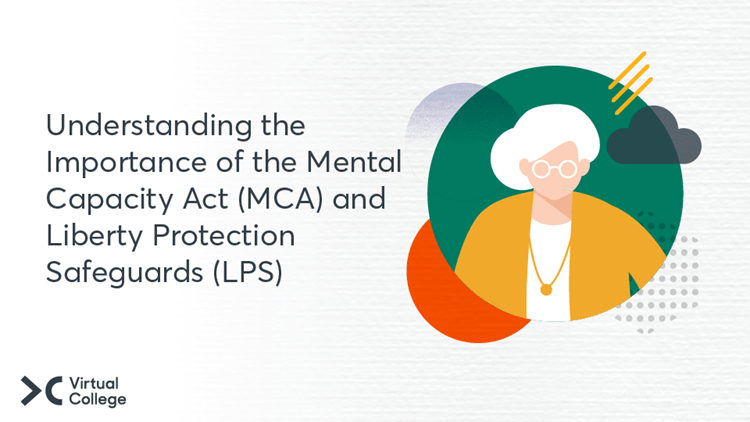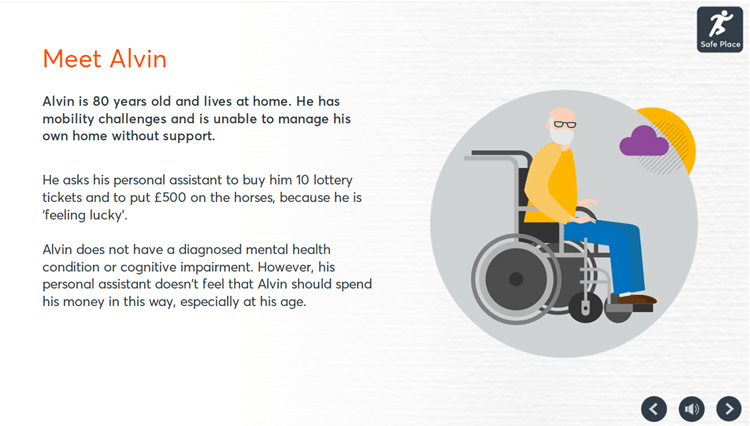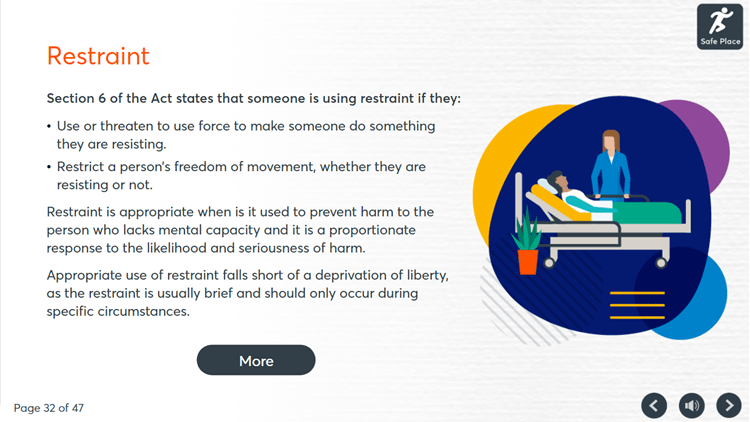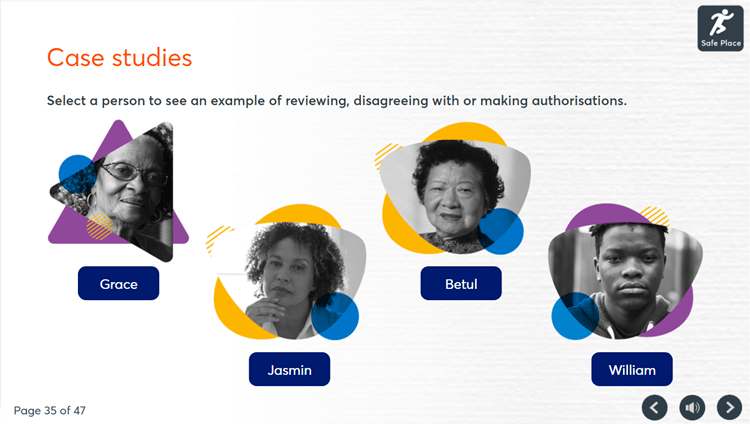Mental Capacity Assessment and Deprivation of Liberty Safeguards








Course Overview
Format
- Intermediate
- 2-3 Study Hours
- Online Study
- Self-Printed Certificate
Accreditation
- 5 CPD Points
- CPD Certified
Course description
This wide-ranging course contains information and guidance on Mental Capacity Assessment and Deprivation of Liberty Safeguards, how to undertake assessments and when they are appropriate, as well as recording the results.
This course contains several sections and covers a huge amount of material concerning Mental Capacity Assessment and the Deprivation of Liberty Safeguards, and includes the following as well as other information:
- How to work in the best interests of individuals and the importance of autonomy
- Guidance to the relevant legislation, such as the principles and Code of Practice of the Mental Capacity Act 2005.
- How to assess capacity, who is able to do it, when it should be done, and how it is recorded
- Descriptions of fluctuating mental capacity, unwise decisions, and how to deal with a refusal to complete an assessment
- Confidentiality
- Understanding mental capacity, and the definition of an individual who lacks capacity, and the presumption of capacity
- Deprivation of Liberty Safeguards and Liberty Protection Safeguards
- Definition of a deprivation of liberty, what is restraint, when they might be necessary, and how the Safeguards apply
This Mental Capacity Act training will give a strong foundation of mental capacity knowledge and how you can apply this knowledge towards duty of care of vulnerable individuals. It also contains examples of tests, challenges to check the learner’s knowledge, and interactive case studies.
You will learn
- Outline why assessing mental capacity is important and understand the legal framework behind this assessment
- Outline who can assess mental capacity, and how to do the assessment, and how to record it
- Explain what is meant by an unwise decision
- Explain what lacking capacity means
- Describe the duties of an Independent Mental Capacity Advocate (IMCA)
Who is it for?
Roles including:
- Social Workers
- Care workers
- Nurses
- Councillors
- Support Workers
Legislation
Legislation covered in this course includes:
- Mental Capacity Act 2005
- Human Rights 1998
- Universal Declaration of Human Rights 1998
- Equality Act 2010
How the online courses work
-
Find a course
To begin searching for your online training you can click on the course category section on our website and browse through all of our training categories.
Alternatively if you already know the title of the training you’re looking for you can use the search bar located in the centre of the homepage and go directly to the course you want.
-
Buy the course
When buying one of our courses, you will need to enter a valid email address which will be used to create your account with our Learning Management System – Enable – where you will take the training. We will also send your purchase receipt to this email address, and any additional courses purchased in future using the same email address will be added to your system account.
Once you have purchased a course, you will be able to send this course to other people using your system account with Enable by entering the new learner’s email address so that they may access the training and set up their own system account with our Learning Management System.
If you are not 100% satisfied with your course then we offer a 30-day, no hassle money-back guarantee. To request a refund, you should email our learner support team with your receipt stating why you would like to be reimbursed. You, or your learners, must not have completed the training in order to make a valid refund claim. Any claim made after the training has been completed will be invalidated.
-
Take the course
This online course consists of a series of pages in which an instructor will talk learners through the lesson material. Pages may include supporting pictures, graphs, animation or extra sounds to help with the learning where appropriate. Some lessons will include challenges/quizzes to help learners stay engaged and interested in the material. Lessons can be taken in any order and each lesson may be paused and resumed at any stage.
The course is self-paced so learners decide how fast or slow the training goes. There is no deadline for completion but some of our courses have a test at the end to check that learners have understood the material. If the course has a test at the end then learners are required to achieve a 75% pass mark to successfully complete the course. Once learners have passed the test they are awarded a certificate, which can either be downloaded digitally or sent as a physical copy if this option was chosen when purchasing the course.
-
Your Certificate
Upon completion of any of our courses, learners will be able to download a digital certificate from Virtual College and will include the accrediting bodies logo where applicable.
If you have bought the posted certificate option (available on select courses), a high quality, seal embossed, certificate will be sent out at the beginning of the following working week.


















